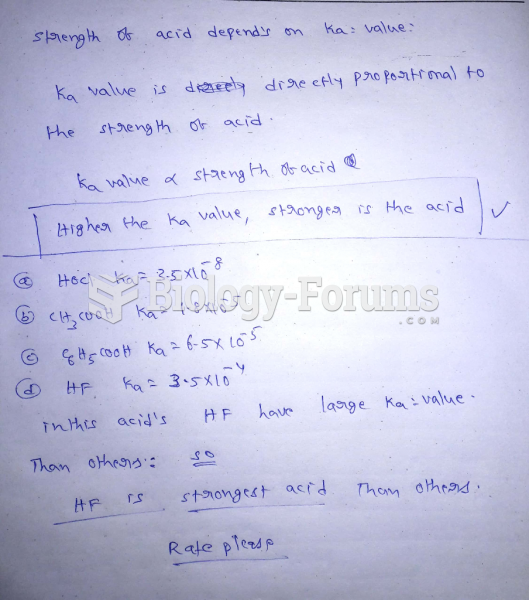|
|
|
Addicts to opiates often avoid treatment because they are afraid of withdrawal. Though unpleasant, with proper management, withdrawal is rarely fatal and passes relatively quickly.
Vampire bats have a natural anticoagulant in their saliva that permits continuous bleeding after they painlessly open a wound with their incisors. This capillary blood does not cause any significant blood loss to their victims.
Despite claims by manufacturers, the supplement known as Ginkgo biloba was shown in a study of more than 3,000 participants to be ineffective in reducing development of dementia and Alzheimer’s disease in older people.
Individuals are never “cured” of addictions. Instead, they learn how to manage their disease to lead healthy, balanced lives.
Parkinson's disease is both chronic and progressive. This means that it persists over a long period of time and that its symptoms grow worse over time.
 Bayliss and Starling discovered the mechanism by which the small intestine and pancreas work togethe
Bayliss and Starling discovered the mechanism by which the small intestine and pancreas work togethe
 Apply circular friction to the left side of the neck along cervical muscles with the fingertips of ...
Apply circular friction to the left side of the neck along cervical muscles with the fingertips of ...





